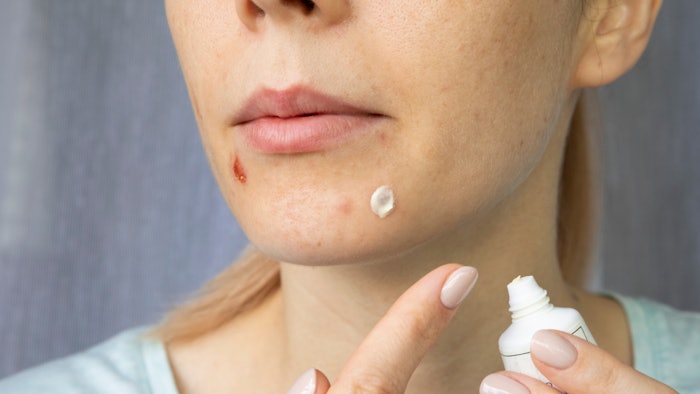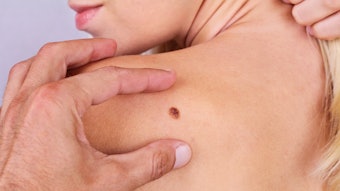
Valisure has filed a Citizen Petition on Benzene in Benzoyl Peroxide Drug Products after extensive testing revealed that benzene can form in high levels in benzoyl peroxide (BPO) acne treatment products. The ingredient is found in many over-the-counter (OTC) and prescription acne products, has been widely used in the United States and globally for more than five decades and has been classified by FDA as “generally recognized as safe and effective”
Valisure has suggested that its tests on dozens of prescription and over-the-counter benzoyl peroxide products indicate that currently formulated BPO medications are fundamentally unstable and can generate unacceptably high levels of benzene when handled or stored at higher temperatures that the products may be exposed to during handling by consumers.
Valisure is requesting an investigation and market withdrawal of BPO-containing products. Data in the petition suggests that only BPO-containing acne treatment products have this issue of forming high levels of benzene.
Until there is further guidance from FDA and verification of the safety and stability of BPO products, the American Acne and Rosacea Society (AARS) has recommended that patients work with their dermatologist or healthcare provider to determine what course to take. There is currently no formal mandate to stop the use of BPO, although switching to another treatment may be a potential option for some.
Related: AAD Releases Updated Guidelines for Management of Acne Vulgaris
Valisure Tests
Valisure performed initial GC-MS analysis on 175 acne treatment products, 99 containing BPO and 76 containing other ingredients, most commonly salicylic acid or adapalene. All 76 non-BPO products had no detectable benzene or values below 2 ppm, while 94 of 99 BPO products contained benzene without any elevated temperature incubation. Therefore, acne treatment products such as those containing salicylic acid or adapalene, do not appear to have this problem.
An initial stability study of five products using 37°C, 50°C and 70°C revealed that dozens of ppm of benzene can form in just a few weeks at 37°C, hundreds of ppm at 50°C, and at 70°C, the apparent degradation of BPO would often lead product packaging to burst.
Valisure’s tests showed that on-market BPO products can form more than 800x the conditionally restricted FDA concentration limit of two parts per million (ppm) for benzene. High levels of benzene were detected inside BPO products and in the air around incubated BPO products, showing that benzene can leak out of some product packages and pose a potential inhalation risk.
Valisure reports that incubation of a Proactiv product at 70°C resulted in the detection of benzene in a compact car’s volume of air at ~1,270x the Environmental Protection Agency’s calculated threshold for increased cancer risk by long-term inhalation exposure to benzene.
David Light, Valisure’s co-founder and president, said, “This discovery of benzoyl peroxide’s fundamental instability and formation of benzene is substantially different than Valisure’s previous findings of benzene in sunscreens, hand sanitizers and other consumer products. The benzene we found in sunscreens and other consumer products were impurities that came from contaminated ingredients; however, the benzene in benzoyl peroxide products is coming from the benzoyl peroxide itself, sometimes at hundreds of times the conditional FDA limit. This means the problem broadly affects benzoyl peroxide products, both prescription and over-the-counter, and necessitates urgent action.
Valisure's Credibility
Valisure's findings over the last year are behind several class action suits and sunscreen, dry shampoo and drug recalls. These include J&J's recall of Neutrogena and Aveeno spray sunscreens and P&G's $8 million payout for Secret, Old Spice, Pantene, Waterless, Aussie, Herbal Essences and Hair Food aerosol products. Both responses related to benzene findings.
According to Law.com, however, not only have defendants such as Unilever, GlaxoSmithKline (GSK) and others questioned Valisure's scientific methods, but also the U.S. Food and Drug Administration (FDA). A letter from the FDA to Valisure, dated Dec. 5, 2022, highlighted "methodological deficiencies" and "analytic descrepancies" in the company's testing.
Examples given included: not establishing and documenting the accuracy, sensitivity, specificity and reproducibility of its methods; not adequately addressing out-of-specification (OOS) test results; using instruments, apparatuses, gauges and/or recording devices that did not meet established specifications; and not setting appropriate controls to assure that analytical data is accurately processed, reviewed and retained; among others.
According to Regulatory Focus (RF), in response to the letter, Valisure said its testing activities are only for informational and marketing use and not for regulatory purposes, and that it is not "subject to the cGMP standards set forth by the FDA." The FDA noted concern that other entities will use Valisure's testing for cGMP purposes, RF added.
Valisure emphasized its "highly impactful discoveries and studies in the last few years strongly demonstrate how important it is to employ independent testing/screening in addition to GMP testing/validation," according to a report in Endpoints.
Response from AARS
The AARS has stated that it fully recognizes this as a very important issue, especially as benzene exposure is harmful to humans, and takes this petition very seriously.
Dermatologist and president of AARS, James Q Del Rosso, M.D., said, “Public safety is the first priority of the AARS. While we await the FDA review of the information, testing data, and proposal reported in the petition, the AARS is evaluating and researching the details stated in the document in order to assure its accuracy and provide guidance based on scientific fact."
Dr. Rosso continued, "This petition came as a surprise to all of us in dermatology as BPO is FDA-approved in many over-the-counter (OTC) and prescription topical products, including a few recently approved prescription products for acne or rosacea. Benzoyl peroxide has been a very important part of the treatment of many patients with acne and also some other skin diseases. We want to be sure that any guidance that is given and any decisions that are made are based as much as possible on solid scientific evidence."
The AARS stresses that it is important to conscientiously follow storage procedures recommended for the product being used, which may minimize the potential for benzene formation. Some products also indicate specific instructions on how long to keep a BPO-containing product until it should be discarded.
Other recommendations include discarding expired BPO products and those that have been exposed to temperatures above room temperature. For new BPO products, store them at refrigerator temperature which at least theoretically can reduce the degradation of BPO to benzene. Replace BPO products every three months or as recommended on the specific product.
More from AARS: American Acne and Rosacea Society Develops Social Media Toolkit for Acne Awareness Month
Response from PCPC
In a press statement responding to Valisure's findings, the Personal Care Products Council (PCPC) called to question Valisure's test methods, referring to them as unrealistic.
The PCPC responded, "... The findings in the most recent Valisure petition are based on unproven, questionable methods applying unrealistic conditions which are inconsistent with the way the product would be stored normally."
The council added that in a December 2022 letter, the U.S. Food and Drug Administration (FDA) highlighted multiple deficiencies in Valisure’s analytical methods, stating that the lab should follow the same testing methods that drug manufacturers are required to use.
Furthermore, the PCPC noted, "Over-the-counter (OTC) drug products such as anti-acne treatments are highly regulated by the U.S. Food & Drug Administration (FDA), which has reviewed and determined benzoyl peroxide is a safe and effective anti-acne ingredient. Consumers have safely used anti-acne products for decades."
Valisure has submitted an FDA citizen petition and is requesting an investigation and market withdrawal of BPO-containing products.











